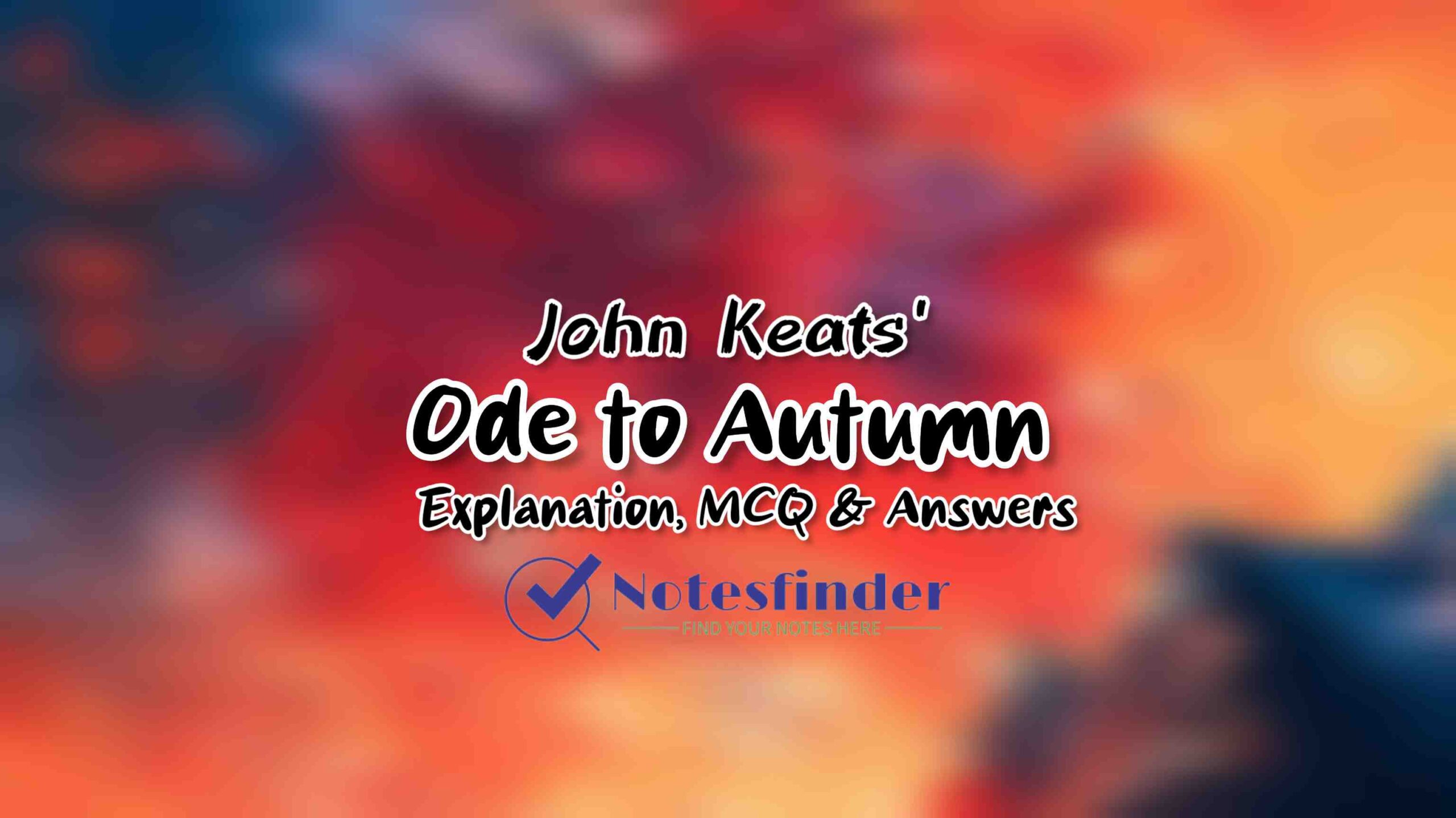Three years she grew in sun and shower
Three years she grew in sun and shower,
Then Nature said, “A lovelier flower
On earth was never sown;
This Child I to myself will take;
She shall be mine, and I will make
A Lady of my own.
“Myself will to my darling be
Both law and impulse: and with me
The Girl, in rock and plain,
In earth and heaven, in glade and bower,
Shall feel an overseeing power
To kindle or restrain.
“She shall be sportive as the fawn
That wild with glee across the lawn
Or up the mountain springs;
And hers shall be the breathing balm,
And hers the silence and the calm
Of mute insensate things.
“The floating clouds their state shall lend
To her; for her the willow bend;
Nor shall she fail to see
Even in the motions of the Storm
Grace that shall mould the Maiden’s form
By silent sympathy.
“The stars of midnight shall be dear
To her; and she shall lean her ear
In many a secret place
Where rivulets dance their wayward round,
And beauty born of murmuring sound
Shall pass into her face.
“And vital feelings of delight
Shall rear her form to stately height,
Her virgin bosom swell;
Such thoughts to Lucy I will give
While she and I together live
Here in this happy dell.”
Thus Nature spake—The work was done—
How soon my Lucy’s race was run!
She died, and left to me
This heath, this calm and quiet scene;
The memory of what has been,
And never more will be.
Word Notes
- Sown: Planted or scattered (usually seeds).
- Lovelier: More beautiful or attractive.
- Nature: The natural world or the forces that govern it.
- Darling: A term of endearment for someone cherished or beloved.
- Impulse: A sudden strong urge or desire.
- Overseeing: Supervising or watching over.
- Glade: An open space in a forest.
- Bower: A shady, secluded retreat or shelter.
- Fawn: A young deer.
- Insensate: Lacking sensation or consciousness.
- Breathing: The act of inhaling and exhaling air.
- Balm: Something that soothes or heals.
- Mute: Silent or without sound.
- Sympathy: Understanding or sharing the feelings of another person.
- Midnight: The middle of the night, specifically twelve o’clock at night.
- Rivulets: Small streams or brooks.
- Vital: Essential or necessary.
- Stately: Impressive or dignified.
- Virgin: Pure or untouched by human experience.
- Bosom: The chest or breast area, often symbolizing emotions.
- Dell: A small valley or hollow usually surrounded by trees or hills.
- Heath: An area of open uncultivated land with low-growing vegetation.
- Calm: Peaceful and quiet.
- Insensate: Lacking sensation or consciousness.
- Dell: A small valley or hollow usually surrounded by trees or hills.
- Rock: A large mass of stone.
- Plain: An area of flat or gently rolling land.
- Mould: Shape or form.
Explanation of the Poem
“Three years she grew in sun and shower,
Then Nature said, ‘A lovelier flower
On earth was never sown;”
In these lines, the poet describes how Lucy spent three years growing and developing, symbolized by the sun and rain that nurtured her. Nature itself observes her growth and declares that she is the most beautiful flower ever planted on Earth.
“This Child I to myself will take;
She shall be mine, and I will make
A Lady of my own.”
Nature decides to take Lucy as its own, claiming her for itself. Nature declares its intention to mold Lucy into a lady, suggesting that it will play a significant role in shaping her character and guiding her path in life.
“Myself will to my darling be
Both law and impulse: and with me
The Girl, in rock and plain,”
Nature proclaims that it will be both the law and the driving force for Lucy. It suggests that Lucy will be in harmony with Nature, experiencing its influence and presence in the rocks and plains, implying a deep connection with the natural world.
“In earth and heaven, in glade and bower,
Shall feel an overseeing power
To kindle or restrain.”
The poet continues to describe how Nature’s influence will extend to every aspect of Lucy’s life. Whether in the earthly realm or the heavenly realm, in the open glades or the sheltered bowers, Lucy will sense a guiding and controlling power that can both ignite her passions and desires or hold them in check.
“She shall be sportive as the fawn
That wild with glee across the lawn
Or up the mountain springs;”
Nature envisions Lucy as being playful and full of joy, akin to a fawn frolicking with delight across a meadow or leaping up the mountainside. This line suggests that Lucy will embody the free-spiritedness and exuberance found in the natural world.
“And hers shall be the breathing balm,
And hers the silence and the calm
Of mute insensate things.”
Lucy will possess the soothing and healing qualities of nature. She will have access to the gentle and comforting essence found in the breath of plants, as well as the tranquility and serenity that comes from being in the presence of silent and unfeeling elements of nature.
“The floating clouds their state shall lend
To her; for her the willow bend;
Nor shall she fail to see”
The poet suggests that Lucy will have a special connection with the elements of the sky. The ever-changing forms of the clouds will reflect her own state of being. Additionally, even the willow trees will bow and bend in her presence, signifying her harmony and influence over the natural world.
“Even in the motions of the Storm
Grace that shall mould the Maiden’s form
By silent sympathy.”
Lucy will find beauty and grace even in the tumultuous movements of storms. The storms will shape her character and appearance through an unspoken understanding and connection between her and the forces of nature.
“The stars of midnight shall be dear
To her; and she shall lean her ear
In many a secret place”
The midnight stars will hold a special place in Lucy’s heart. She will find solace and comfort in their presence. Lucy will seek out secluded spots where she can listen attentively to the secrets whispered by nature, deepening her connection to the natural world.
“Where rivulets dance their wayward round,
And beauty born of murmuring sound
Shall pass into her face.”
Lucy will be drawn to the meandering paths of rivulets, where she will witness the beauty that arises from the gentle sounds of their flowing waters. This beauty will reflect in her face, suggesting that her own countenance will radiate the harmony and tranquility of the natural world.
“And vital feelings of delight
Shall rear her form to stately height,
Her virgin bosom swell;”
Lucy will experience intense emotions of joy and delight, which will contribute to her growth and development. These feelings will elevate her stature and give her a dignified presence. Her youthful and pure heart will blossom and flourish.
“Such thoughts to Lucy I will give
While she and I together live
Here in this happy dell.”
The poet concludes by stating that these thoughts and visions of Lucy’s relationship with nature will be bestowed upon her by Nature itself. These thoughts will shape her life as long as she and Nature coexist in this blissful valley. The poem suggests a deep bond between Lucy and the natural world, while also foreshadowing a tragic turn of events.
“Thus Nature spake—The work was done—
How soon my Lucy’s race was run!
She died, and left to me”
Nature’s plans and declarations for Lucy have been spoken and fulfilled. However, there is a sudden shift in tone as the poet reveals that Lucy’s life came to an abrupt end. Despite Nature’s intentions and influence, Lucy passed away prematurely, leaving behind a sense of loss and sadness.
“This heath, this calm and quiet scene;
The memory of what has been,
And never more will be.”
The poet reflects on the present state of things, describing the heath, a barren and open landscape, which serves as a backdrop for the poet’s thoughts. The calmness and tranquility of the scene contrast with the memories of what once was. The memory of Lucy’s presence and the fulfillment of Nature’s plans for her will never be experienced again.
Figures of Speech in the Poem
- Personification: (a) “Nature said” (b) “Where rivulets dance their wayward round,”
- Simile: “She shall be sportive as the fawn.”
- Hyperbole: “A lovelier flower/On earth was never sown”
- Alliteration: “In one of those sweet dreams I slept”/ “By silent sympathy”
- Euphemism : “How soon my Lucy’s race was run!” – The death of Lucy is not directly stated.
- Antitheses : “The Girl, in rock and plain,/ In earth and heaven, in glade and bower.”
- Transferred Epithet : “Here in this happy dell.”
- Onomatopoeia : “And beauty born of murmuring sound.”
MCQs & Answers from Three Years She Grew…
1. What did Nature say about the child after three years?
a. “She will become a queen.”
b. “She shall be mine, and I will make a Lady of my own.”
c. “She will be wild and untamed.”
d. “She will be a delicate flower.”
Answer: b. “She shall be mine, and I will make a Lady of my own.”
2. According to Nature, what kind of power will oversee the girl’s life?
a. The power of darkness and sorrow.
b. The power of freedom and independence.
c. The power of love and kindness.
d. The power to kindle or restrain.
Answer: d. The power to kindle or restrain.
3. What does the speaker mention as dear to Lucy?
a. The chirping birds.
b. The sound of flowing water.
c. The scent of blooming flowers.
d. The stars of midnights.
Answer: d. The stars of midnights.
4. According to Nature, what will shape the maiden’s form?
a. The sound of laughter.
b. The touch of sunlight.
c. The power of silent sympathy.
d. The fragrance of blooming flowers.
Answer: c. The power of silent sympathy.
5. What does Nature say will pass into the girl’s face?
a. Shadows and darkness.
b. Serenity and calmness.
c. Radiance and beauty.
d. Melancholy and sorrow.
Answer: c. Radiance and beauty.
6. What is Nature’s intention for the girl mentioned in the poem?
a. To make her a lady of noble birth.
b. To turn her into a wild and untamed creature.
c. To nurture her into a beautiful and refined woman.
d. To keep her hidden from the world’s influences.
Answer: c. To nurture her into a beautiful and refined woman.
7. How does Nature describe the girl’s connection with the natural world?
a. She will dominate and control nature.
b. She will be passive and unresponsive to nature’s beauty.
c. She will have a deep understanding and bond with nature.
d. She will be frightened and overwhelmed by nature.
Answer: c. She will have a deep understanding and bond with nature.
8. What does the speaker say will lend their state to the girl?
a. The rivers and streams.
b. The birds and animals.
c. The clouds and the willow tree.
d. The moon and the stars.
Answer: c. The clouds and the willow tree.
9. How long did the girl grow in sun and shower?
a. Two years
b. Three years
c. Four years
d. Five years
Answer: b. Three years
10. According to Nature, what does she want to make the girl?
a. A queen
b. A lady
c. A princess
d. A goddess
Answer: b. A lady
11. What does Nature say will shape the maiden’s form?
a. Silent sympathy
b. Earth and heaven
c. Rock and plain
d. Glade and bower
Answer: a. Silent sympathy
12. What will pass into the girl’s face?
a. Beauty born of murmuring sound
b. The breathing balm
c. The silence and calm
d. The motions of the Storm
Answer: a. Beauty born of murmuring sound
13. What does the speaker have left after the girl’s death?
a. A lovelier flower
b. The memory of what has been
c. The happiness they shared
d. The hope of seeing her again
Answer: b. The memory of what has been
14. According to Nature, what will oversee the girl’s life?
a. Law and impulse
b. Freedom and independence
c. Love and kindness
d. Power to kindle or restrain
Answer: d. Power to kindle or restrain
15. What does Nature say the girl shall be as sportive as?
a. The fawn
b. The bird
c. The wind
d. The river
Answer : a. The fawn
16. Which of the following does Nature say will lend their state to the girl?
a. The clouds
b. The trees
c. The stars
d. The flowers
Answer : a. The clouds
17. What does Nature say the girl shall lean her ear in?
a. Secret places
b. Open fields
c. Crowded cities
d. Noisy gatherings
Answer : a. Secret places
18. What does the speaker say will rear the girl’s form to stately height?
a. Silent sympathy
b. Vital feelings of delight
c. Nature’s touch
d. Time’s passage
Answer : b. Vital feelings of delight
19. According to Nature, what shall shape the maiden’s form?
a. The storm’s movements
b. The flowing river
c. The dancing birds
d. The sun’s rays
Answer : a. The storm’s movements
20. How does the speaker describe the girl’s connection with the stars?
a. The stars shall guide her way
b. The stars shall be her companions
c. The stars shall bring her joy
d. The stars shall be dear to her
Answer : d. The stars shall be dear to her
21. What does Nature mention willows doing for the girl?
a. Bending toward her
b. Singing her lullabies
c. Protecting her from storms
d. Offering her shade
Answer : a. Bending toward her
22. What does Nature say about the clouds in relation to the girl?
a. They shall follow her every step.
b. They shall take the shape of her dreams.
c. They shall lend their state to her.
d. They shall disappear when she is present.
Answer : c. They shall lend their state to her.
23. What would she learn from the storm?
a. sympathy
b. motion
c. grace
d. silence
Answer: c. grace
24. “She died, and left to me
This heath”, what does the word Heath mean here?
a. silent valley
b. fields full of crops
c. flat unused barren land
d. loneliness
Answer : c. flat unused barren land
25. ‘Three Yeara She Grew’ is a/an
a. lyrical elegy
b. epic
c. elegy
d. Lyric
Answer : a. lyrical elegy



